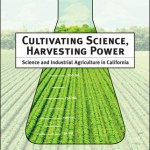expertise
This, our first week of classes of the Spring semester, also marked the return of regular publication of the daily student newspaper. Since I'm not behind on grading yet (huzzah for the first week of classes!), I picked up yesterday's copy and read one of the front-page articles on my way to my office.
And dagnabbit if that article didn't angry up my blood.
The trouble is, I'm having a hard time figuring out where properly to direct that anger.
The article, which appeared below the fold, was titled "U.S. Health Secretary urges vaccinations". It drew from a January 26, 2010 conference call…
Pt. I | Pt. 2 | Pt. 3 | Pt. 4
---
Part 2 with Christopher Henke, discussing his book Cultivating Science, Harvesting Power, follows below. All entries in the author-meets-blogger series can be found here.
WF: Now I can get back to the interpretive framework and your own concepts when understanding your empirical evidence. "Repair" is a guiding framework for you here, a way of approaching, understanding, and explaining your research findings. So what do you mean, repair?
CH: We use the term repair in everyday life to describe the process of fixing things---sociologists use repair as a…
The World's Fair is pleased to offer the following discussion about Cultivating Science, Harvesting Power: Science and Industrial Agriculture in California (MIT Press, 2008), with its author Christopher Henke. Henke is an assistant professor of sociology at Colgate University, an STS scholar, and a contributor to Colgate's environmental studies program.
Cultivating Science, Harvesting Power, says its publisher, "explores the ways that science helped build the Salinas Valley and California's broader farm industry." In doing so, Henke provides an account of "how agricultural scientists and…
